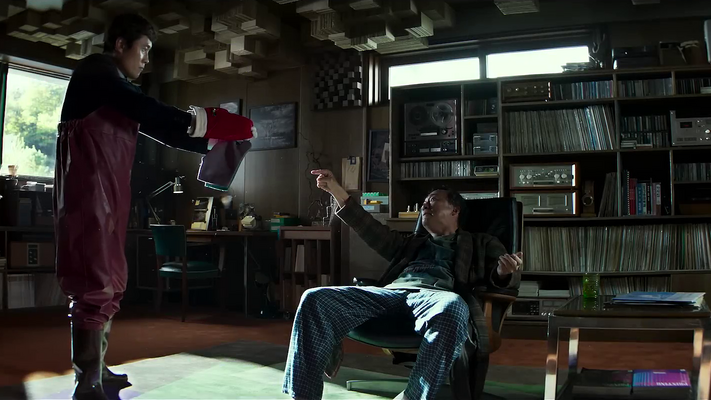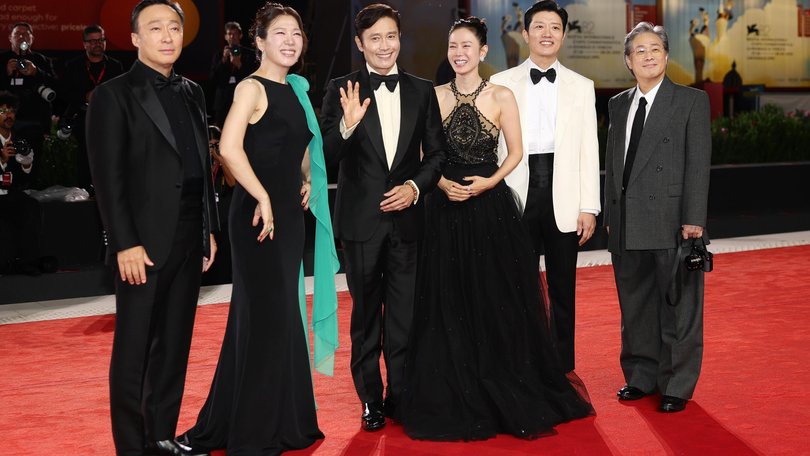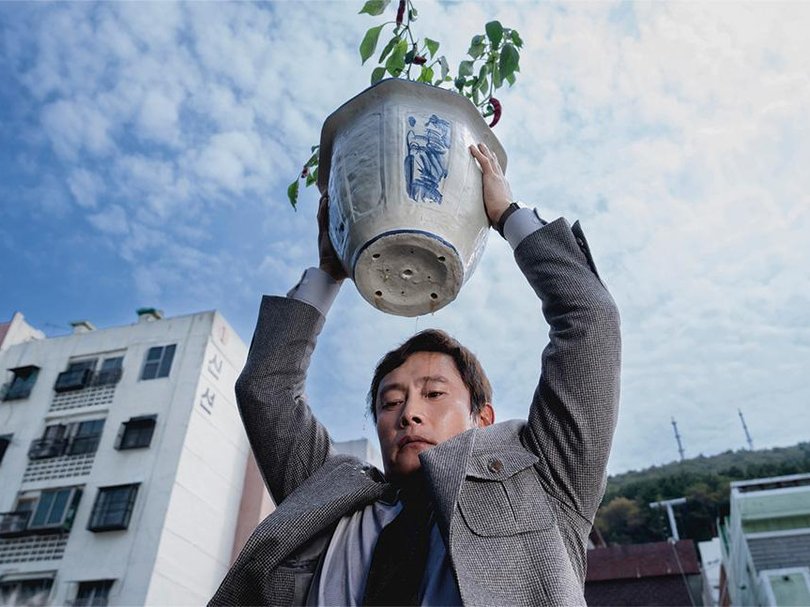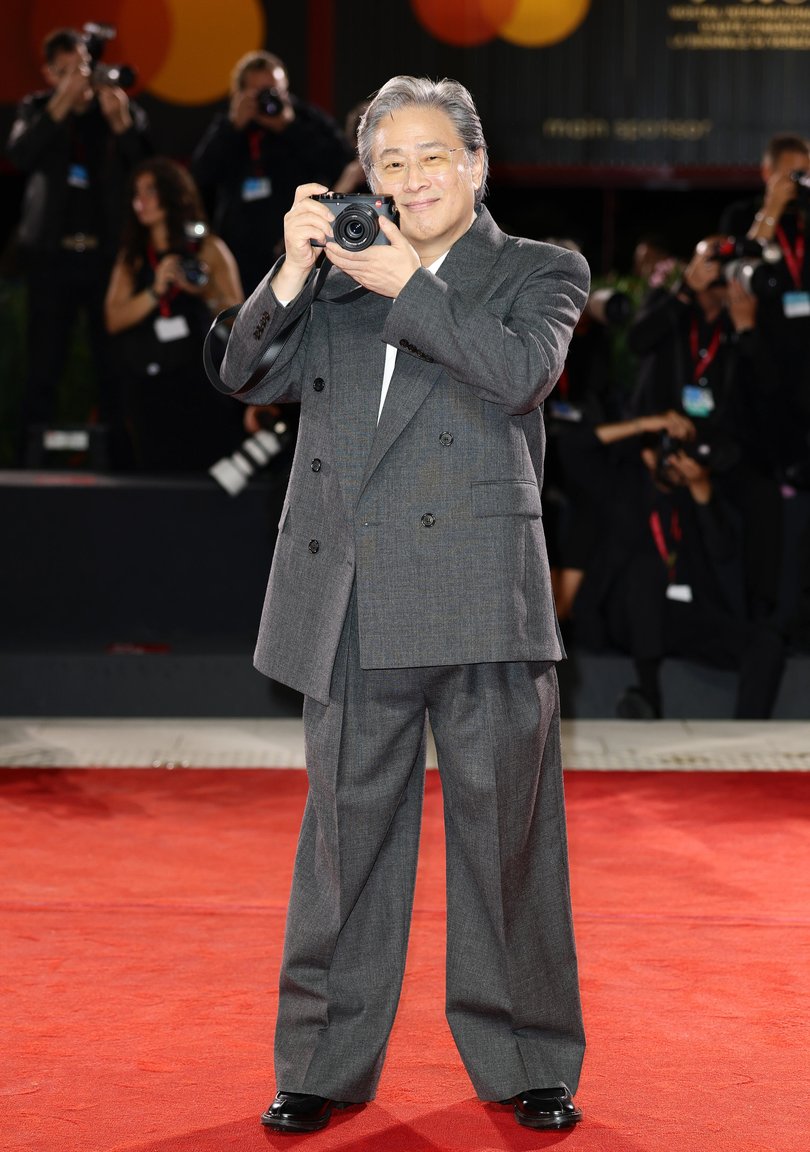WASHINGTON POST: Park Chan-wook’s savage satire of layoffs, redundancy & revenge ignites Venice Film Festival
THE WASHINGTON POST: No Other Choice is a dark comedy about a man who wages war after being made redundant from his job of 25 years.

Right around when Park Chan-wook’s No Other Choice should have been making its world premiere, the lobby of the Sala Grande looked like the aftermath of an epic Amtrak delay.
The sea of people was endless, extending all the way up a spiral staircase. All anyone knew was that it was well past start time and the theater doors hadn’t opened. Then came the screaming. “Bong Joon-ho is here! Everyone loves Bong Joon-ho!” said one woman with enough fervor that I was convinced that the Parasite director really had flown all the way to Venice to cheer on his buddy Park, the twisted master of opulence and torture behind The Handmaiden and Oldboy. But it was just someone mistaking one South Korean directing legend for another.
The reason for the delay, it seemed, was the standing ovation for Julia Roberts’s anticipated but knotty After the Hunt. It was a fitting windup to Park’s riveting, pitch-black social comedy about insiders and outsiders, haves and have-lesses. His movie had attracted a very different crowd and way fewer paparazzi and autograph-seekers. Some seats were empty because it was late and people were already off enjoying their weekends.
Sign up to The Nightly's newsletters.
Get the first look at the digital newspaper, curated daily stories and breaking headlines delivered to your inbox.
By continuing you agree to our Terms and Privacy Policy.
But by night’s end, as a triumphant Park and his cast were showered with whoops, a standing ovation, shouts of “Bravo” and a staggering 100 per cent on Rotten Tomatoes, it became clear that any Oscars predictions should have been directed toward this film from the start.
The story follows Man-su (Squid Game villain Lee Byung-hun), a factory manager for a paper company who’s fired after 25 years, who, in his desperation, feels he has “no other choice” but to start waging war for his family. That is, he needs to start offing his competition — something he’s even worse at than job interviews.
It’s a movie about automation, corporate takeovers and the costs of discarding humans and decades of experience in the face of changing times — universal themes, filtered through the lens of South Korea’s norms around masculinity. And it’s classic, ingeniously violent Park Chan-wook, who delves into what happens when one’s survival needs outweigh their morals.
Every actor at the Venice news conference said they were so excited Park had even called them that they said yes before reading the script - he’s just that big of a deal in the South Korean film world.
“I said to my manager . . . ‘Call him immediately before he changes his mind,’” said Park Hee-soon, who plays Choi Sun-chul, the conceited alpha manager at Moon Paper who spends his spare time filming social videos of himself chopping wood while swigging whiskey, and makes fun of Man-su when he’s on his knees begging for a job.
Park has spent 20 years trying to make this movie — an adaptation of Donald E Westlake’s 1997 satirical novel The Ax, which was adapted into a 2005 film by Costa-Gavras, to whom No Other Choice is dedicated. He deeply related to the book, he told reporters.
Like filmmakers, he said, people who work in paper companies have a unique occupation that they’re utterly devoted to, in spite of others’ indifference. “But we really don’t care what other people think,” he said through a translator.
As a filmmaker who’s gone through long periods between projects, Park said, he’d experienced his own version of what felt like unemployment — lasting for months and even years. Every time he’s made the rounds pitching studios about this project, he said, it felt like those terrible job interviews Man-su goes on in the film.

“Anyone who’s out there trying to make a living in the current modern capitalist society, we all harbour that deep fear of employment insecurity,” Park said. The reason he’d been able to plug away at the film for 20 years was because every time he’d tell the story to someone, no matter when, or what country or culture they were from, “They would always say, ‘Oh, that’s such a timely story,’” he said.
“So I think that gave me the confidence that this was a film that will eventually get made.” (Although it really did take this long, he said, to get the money together.)
Critics have been raving since the premiere. Indiewire’s David Ehrlich called it “brilliant, bleak and mordantly hilarious,” adding, “no one on Earth can match Park’s signature ability to make characters more endearing as they stumble toward the void.”
Nicholas Barber of the BBC called it “(not) just Park’s funniest film, but his most humane, too.” Jessica Kiang of Variety declared it “the latest exhibit in the mounting body of evidence suggesting Park Chan-wook may be the most elegant filmmaker alive”.
On the ground, it’s the most talked-about movie here. Ask journalists from Italy to the United Kingdom what’s the best movie that’s played in competition, and they’ll say this one, without hesitation. I’ve seen and heard people raving about it in group chats, restaurants, on the water bus home - multiple nights in a row.
Comparisons will be made to “Parasite,” of course. It’s another bleakly funny class comedy from a South Korean filmmaker at the top of his game. Park and Bong share a diabolical sense of humour and a love of creative violence. But “No Other Choice” is much more about the capitalist system — not so much about striving, but about the corrupting pressure of trying to hold onto your spot when you’ve just barely made it to the upper middle class.

“Among the more tragic ironies of No Other Choice is that Man-su goes to wild extremes just to avoid the horror of falling into a slightly lower tax bracket,” Ehrlich writes.
Those themes may play well with an American audience dealing with economic uncertainty, and Neon, which also distributed Parasite and got it all those Oscars, knows how to keep the word of mouth flowing straight to the box office and awards shows.
It’s been five years since Parasite made history as the first non-English language movie to win Best Picture, even with none of its fantastic cast getting nominations. In the intervening years, we’ve seen actors from Squid Game, Shogun and Minari get recognised by major awards bodies.
The Motion Picture Academy has dramatically diversified its membership. The stage has been set for the Oscars to have a do-over — and, perhaps, for Lee Byung-hun and Son Ye-jin (who’s terrific as Man-su’s upbeat wife Mi-ri, who starts clocking what he’s doing) to get recognized alongside the movie, its director and its great technical achievements.
It also happens to be a weird year in movies - up until now, Sinners and Cannes sensation Sentimental Value have felt like the only locks for a best-picture nomination. (Add to that Chloé Zhao’s “Hamnet,” which got a sensational reaction at the Telluride Film Festival in Colorado, which is taking place at the same time as Venice.)
Standing in the theatre during Park’s curtain call at Venice, with audience members unable to stop themselves from cheering, it felt like we’ve finally got another lock on that list.
